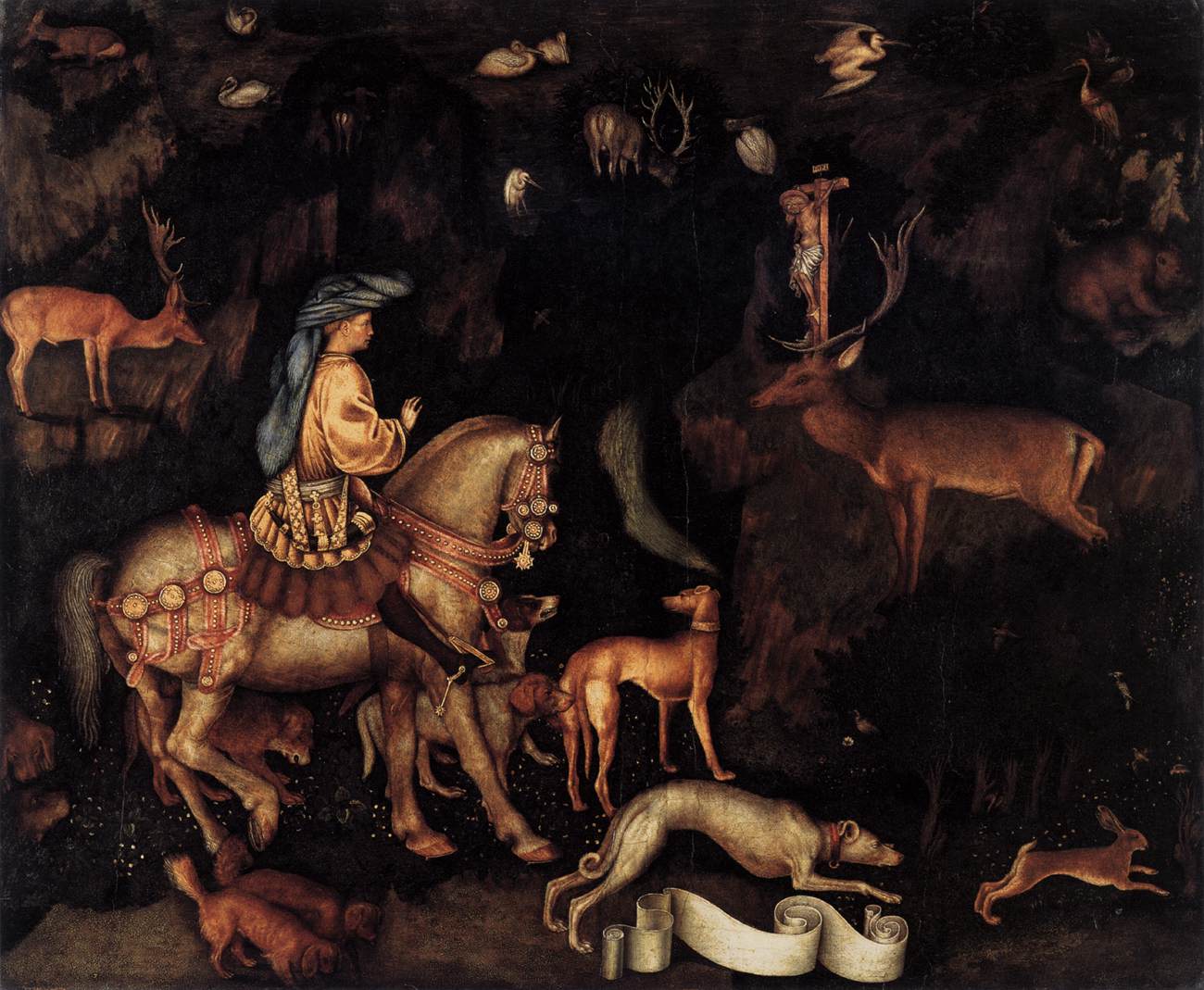Description
The painting "Vision of St Eustace" by the Italian artist Pisanello is an early Renaissance masterpiece noted for its complexity and beauty. The work, which measures 55 x 65 cm, presents a complex and detailed composition that shows the vision of Saint Eustace while hunting in the forest.
Pisanello's artistic style can be seen in the way he renders details of nature, animals, and the characters' clothing. The technique used is highly detailed and precise, creating a sense of realism and depth in the work.
The composition of the painting is very interesting as it presents multiple scenes in a single image. At the top is the vision of the cross between the stag's antlers, while at the bottom is the hunt and Eustace's encounter with the stag. The arrangement of characters and items in the painting creates a sense of movement and action.
The color used in the painting is very vibrant and bright, which accentuates the beauty of the work. Gold and blue tones are used in the clothing of the characters, while green and brown tones are used in the representation of the forest and animals.
The history of the painting is very interesting, as it is believed to have been commissioned by the Duke of Mantua, Gianfrancesco Gonzaga, as a gift to Pope Martin V. The work is currently in the Louvre Museum in Paris.
Little-known aspects of the painting include the presence of hidden Christian symbols in the work, such as the depiction of the Trinity on the cross between the deer's horns. Furthermore, the figure of Eustace in the painting is believed to be based on Pisanello himself, adding a personal element to the work.
In short, Pisanello's "Vision of St Eustace" painting is an early Renaissance masterpiece noted for its intricacy, beauty, and detailed technique. The composition, color and history of the painting are interesting aspects that make this work one of the most important in Renaissance art.

